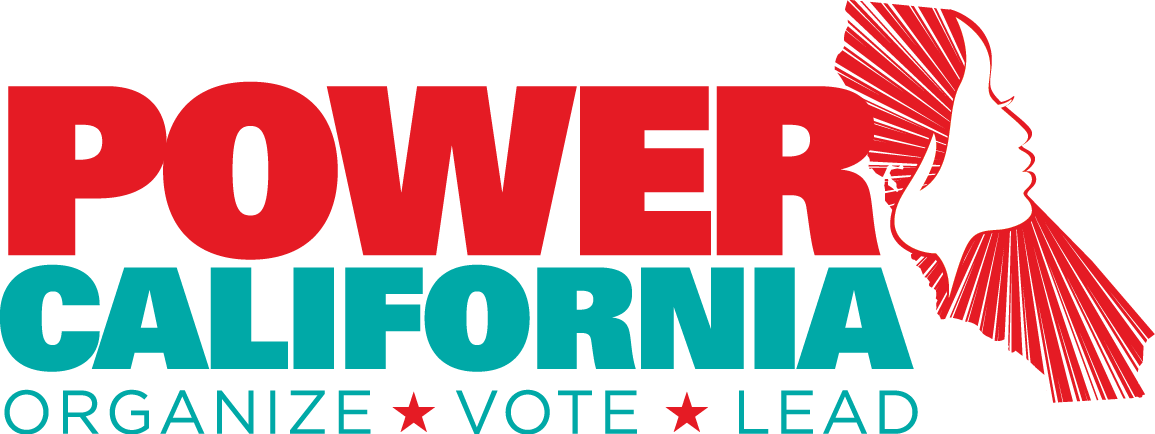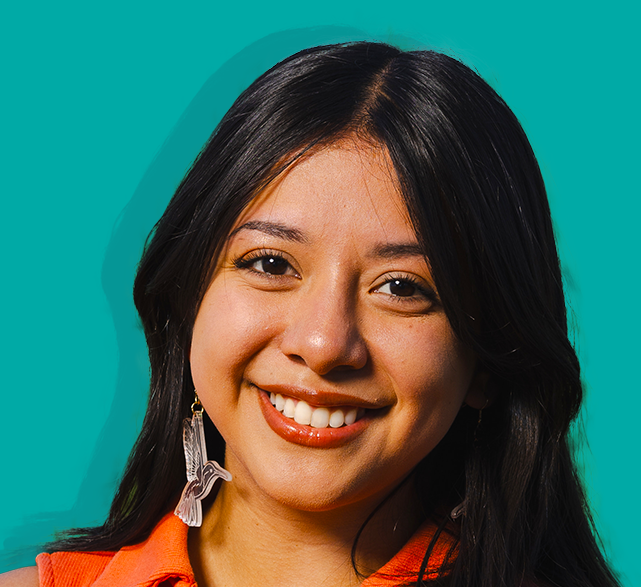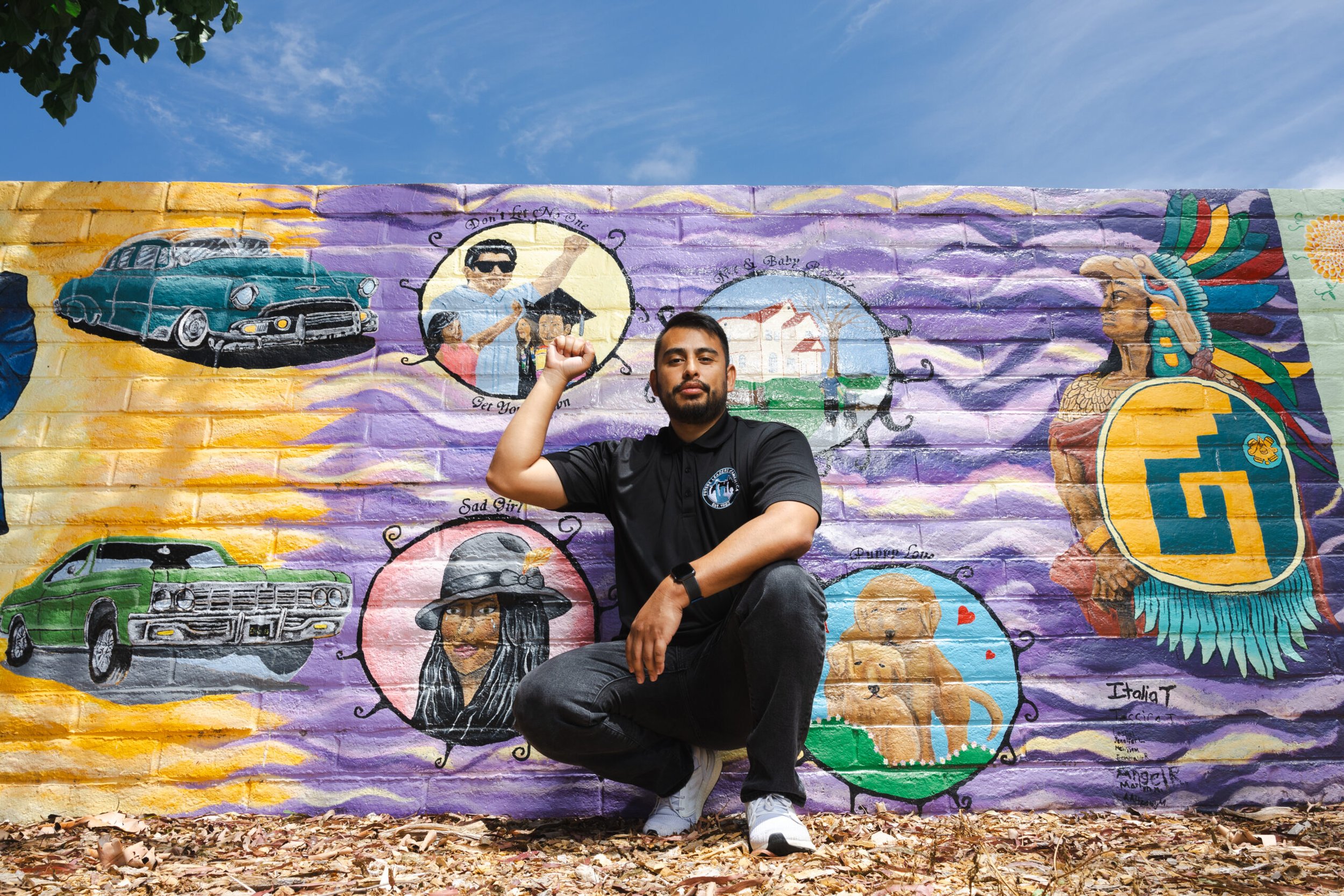Power California
5 Years
New Lanes of Power
The future of California is here — over the last five years, young voters of color have become our state’s most formidable political force.


Astrid Morales
she/her
23, Organizer, Power California
First Generation UC Merced Graduate
“No matter what we look like or how much money we have, we have the power to make change.”
Astrid Morales, raised in South Gate, California, remembers clearly the first time she realized more was possible for her loved ones and community.
“I always knew the system was broken. I thought families like mine were meant to struggle and stay poor,” says Morales.
Then 15, she recalls the classroom presentation where an organizer with Power California, another first-generation voter, showed her change was within reach. “She shared the wins that young people had made throughout California and I realized that wow, I could do that too.”
From that point on, Morales became an unstoppable leader — from registering young voters in high school, to organizing as a UC Merced student, and volunteering on Power California’s campaigns.
Morales is now a proud staff member of Power California, developing the next generation of leaders in the Central Valley. “No matter what we look like or how much money we have, we have the power to make change.”
Q&A
What stands out most to you about how Power California works with young people?
“Power California’s approach is all about building real relationships, not only among staff with young people, but members with each other.
We offer so many free and ongoing leadership and training opportunities, from workshops focused on policy issues and the bill process, to political history and solidarity and mutuality. We then apply the skills and knowledge through direct action by going to Sacramento and local city halls for legislator visits, press conferences, rallies, marches.”
How do you see Power California expanding its impact going forward?
“I’m excited to see our membership grow, especially in the Central Valley where we’re already tapping in with so many young people who are really energized to make change in their communities.”
Daniel Gonzalez
he/him
34, Director of Organizing and Advocacy, Future Leaders of America
Gen Now Narrative Fellow
“The fellowship really shaped my leadership style, how I support my team, and how I show up.”
In the Central Coast, a group of small but mighty students at Future Leaders of America felt the pushback of a growing group of affluent and conservative parents with a simple idea: college readiness as a civil right.
Future Leaders of America were pushing a campaign of A-G for All at the Santa María Joint Union High School District, the simple idea that every student should be prepared for college regardless of their zip code, skin color, income, or immigration status. As their opposition rose, it became clearer that the battle would be won or lost in the public debate.
“This fellowship came at a time when our students were being attacked by conservatives,” says Daniel Gonzalez. “It prepared us to think critically on how to respond to our opposition and help us reshape the narrative.”
In late 2019, Power California launched the Gen Now Fellowship (initially called The New Majority Fellowship), a landmark narrative and strategic communications training program for alliance partners. In partnership with ReFrame, a national nonprofit dedicated to building the narrative power of social justice organizations, our fellowship trained ten alliance staff members through small group coaching, hands-on narrative strategy development, and skills workshops.
Due to the unique investment in Alliance partners through our fellowship, many organizations committed afterwards to expanding their communications capacity through dedicated staffing and resources, integrating narrative strategy as a key part of their organizing work moving forward.
“The fellowship really shaped my leadership style, how I support my team, and how I show up,” says Gonzalez, who grew from lead organizer to director of organizing during the course of the program.
Jeacile Bell
she/her
25, Organizer, Californians for Justice
Lifelong Long Beach Resident
“It was amazing to be part of student-led, youth campaigns. I wanted to mobilize as many youth that looked like me as possible to fight. We had solidarity regardless of where in California we stayed.”
Jeacile Bell, then 22, remembers powerful moments she shared over the phones with voters across California. “Some conversations were so personal, too good to let go,” says Bell.
Even while based in Long Beach — where Bell was raised in a big family by Black and Filipino immigrant parents — she volunteered to fight alongside young people in other cities, including in Oakland, where local coalitions supported by Power California were pushing a ballot measure to expand the school board election voting age to 16.
“I felt called to the Oakland fight. Location has never mattered because it’s always been about the youth. I saw how each region is playing a part when it comes to statewide campaigns.”
Bell recalls participating in script, messaging, and field program trainings hosted by Power California, through her work leading a satellite campaign for Vote at 16 in Oakland with the Long Beach chapter of our Alliance partner, Californians for Justice (CFJ).
“It was amazing to be part of student-led, youth campaigns. I wanted to mobilize as many youth that looked like me as possible to fight. We had solidarity regardless of where in California we stayed.”
Bell spent countless days supporting not only statewide efforts to expand the youth vote, but also campaigns to achieve police-free schools, and push for Proposition 15, Schools & Communities First.
Her leadership and political engagement deepened, eventually leading to joining CFJ full-time as a community organizer.
Now, 25, Bell provides guidance to young people in her hometown, which she says was critical in her own journey.
“I don’t know where I’d be without the organizers I met as a youth. Now I can play that role, to create a safe and understanding space for the next generation. Because there’s always something we’re fighting, being Black and Brown at any age.”
Joaquin Gonzalez
he/him
19, Power California & InnerCity Struggle Member
Sophomore at UC Riverside
“The Parkland students got a lot of attention. But that’s because the media normalizes violence in Black and Brown neighborhoods. The walkouts in LA was to make sure we were seen.”
In 2018, when all eyes in the nation were focused on a group of predominantly white teens demanding gun reform in the wake of the Parkland shooting that took the lives of 17 students, Joaquin Gonzalez, then 14, organized a mass walkout in the Eastside of Los Angeles.
“At the time of the Parkland shooting, I wasn’t able to vote,” says Gonzalez. He recalls the frustration of the moment, growing up in a neighborhood that regularly saw gun violence.
In the wake of Parkland, interest peaked amongst youth of color to join March for Our Lives, the national action on gun reform. Power California seized the moment to shift the national narrative on gun violence and redefine school safety by leading a robust training program on racial justice messaging and voter registration.
As a result, California witnessed tens of thousands of young people participate in walkouts and marches, with a shared racial justice message of safety, and registered scores of young people to vote.
Gonzalez, now 19, is hard at work as a sophomore at UC Riverside. In his free time, he trains the next generation of leaders as a fellow at Yo! Cali.
After college, Gonzalez plans to return back to the Eastside of Los Angeles to address environmental racism so that everyone has access to green spaces and clean air.
Q&A
What was it like being part of Power California as a youth?
“Power California has always been a home for me and a pivotal part of my professional development. They gave me one of my first jobs. I was a phone banker educating voters in high school before I was even eligible to vote. That experience framed why educating voters was so vital and it mattered even if I couldn’t vote because I was speaking up.”
Miracle Jackson
she/her
22, Power California Member
Fresno City College Student, Rent Control Advocate, and Entrepreneur
“I’m passionate about rent control in Fresno because it would mean my community could advance themselves. Even though I work 3 jobs, even having access to financial support for rent, I’ve never felt comfortable in my housing – it’s my biggest barrier.”
Born and raised in Southwest Fresno, Miracle Jackson witnessed firsthand the importance and challenge of finding affordable housing. She recalls her mother facing obstacle after obstacle in keeping a stable, safe roof for the family.
“I’ve been in transition all my life, moving around a lot. I’ve never felt comfortable in housing – it’s my biggest barrier,” says Jackson.
That’s why Jackson’s love for her city and its people centers everything she does. As a recent graduate of Fresno’s Downtown Academy – where she advanced her skills to advocate for a vibrant city and inclusive community development – Jackson joined Power California and soon became a leading voice on the campaign for rent control, including through direct action, publishing an op-ed in the Fresno Bee, and legislative visits to the State Capitol.
Her experience working for the City of Fresno in emergency rental assistance programs during the pandemic made even clearer the struggles of families like her own.
“I’m passionate about rent control in Fresno because it would mean my community could advance themselves. We’d experience less stress and be able to afford what we need. Even though I work 3 jobs, even having access to financial support for rent, I’ve never felt comfortable in my housing – it’s my biggest barrier.”
When she’s not advocating with Power California, Jackson is building community among young Black creatives and go-getters in Fresno. As the founder of a local youth-led collective, The Council of Black Entrepreneurs, Jackson envisions creating safe spaces for 18-20 year old Black entrepreneurs to build relationships and find shared success.
Tyler Okeke
he/him
22, Power California Board Member
Former Vote at 16 Youth Organizer, Former LAUSD Board of Education Student Rep
“Our youth vote efforts in LA and cities statewide changed the narrative. We activated a generation of politically engaged young people to agitate and make the future they wanted a reality, before and despite voting eligibility.”
As LAUSD’s Board of Education 2018-19 student representative, Tyler Okeke, then 17 years-old, witnessed up close the harms of adult decision-making and politicking on young people. Partnering with Power California, Okeke led a vision to expand school board election voting rights to 16 and 17 year olds – sparking a wave of youth across California cities to fight for the same.
With his learnings in LA, he supported a statewide coalition of youth organizers – particularly in Oakland, San Francisco, Merced, and Sacramento – fighting for the right to vote early. Okeke trained young leaders on everything from earned media and messaging to lobbying and direct action.
Oakland voters, in an overwhelming majority, ultimately passed Measure QQ to expand the school board election voting age to 16.
To this day, Tyler still receives messages from youth across the country inspired to vote early, often, and on behalf of loved ones who can’t. They’re energized to replicate efforts like those in Los Angeles and Oakland.
“In only five years, we’ve raised young people to be the focal point of legislators across regions.”
During the pandemic, Okeke continued to advocate fiercely as a media and legislative spokesperson for youth needs, uncovered by the findings of Power California’s 2020 youth poll, which surveyed fifteen hundred young people across the state.
At the age of 22, Tyler Okeke became the youngest representative when he joined Power California’s board of directors.
Q&A
What stands out most to you about Power California?
“Power California is focused not just on youth development – but on youth power building. Rather than telling young people what to fight for, Power California puts resources into statistically and scientifically figuring out what young people need.”












